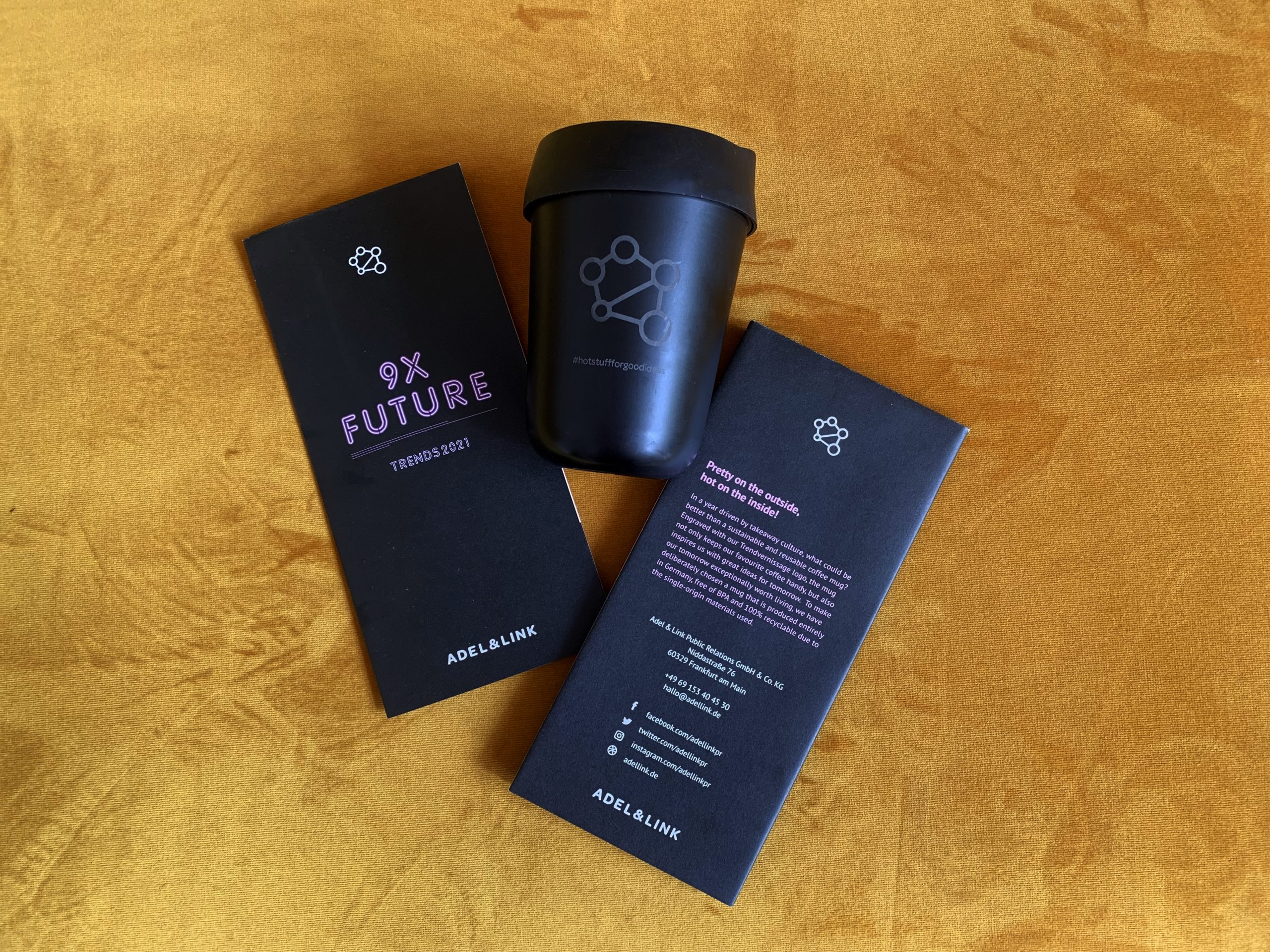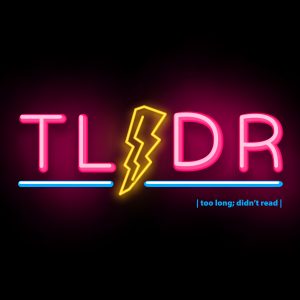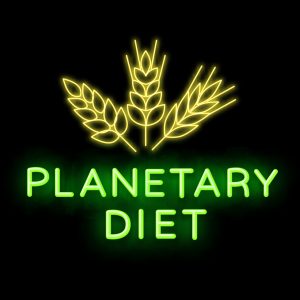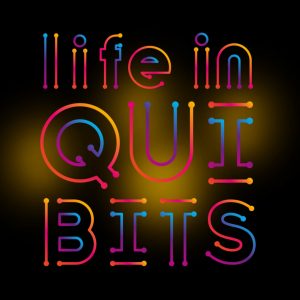
30 Mai 9x Zukunft: Unsere Trends 2021 / 9x Future: Our Trends 2021
Was zählt im Leben wirklich? Wofür sollten wir einstehen? Und wie wollen wir in Zukunft leben? Unsere jährliche Trendanalyse hat uns diesmal zu den Antworten auf genau diese Fragen geführt. Neun gesellschaftliche Trends haben wir auf dieser Grundlage definiert – neun Tendenzen mit starker Leuchtkraft!
What are the things that really matter to us? What should we stand up for? And how do we want to live our lives in the future? This year, our annual trend analysis has led us to seek answers to these questions. Below we shine a light on nine predictions – nine intriguing trends that shine bright!
TL;DR
 Der Goldfisch ist uns überlegen. Zumindest in puncto Aufmerksamkeit: Ersterer bleibt neun Sekunden konzentriert, wir sind schon nach acht Sekunden raus. Im Jahr 2000 blieben wir noch 12 Sekunden bei der Sache. Unsere Aufmerksamkeitsspanne schmilzt statistisch betrachtet dahin. Push-Nachrichten, Meldungen und Mails zerren permanent an der Konzentration. Täglich bricht eine Informationsflut über uns herein. [Hey – könnt ihr noch folgen?] Wie viel Zeit bleibt für Artikel und Texte, die fünf, acht oder zwölf Minuten beanspruchen? Die Antwort lautet: keine. Vor diesem Hintergrund ist TL;DR entstanden – Too Long; Didn‘t Read. Verwendet wird es auf zwei Arten. Als Kommentar unter zu langen Artikeln im Netz weist die Abkürzung auf die unzumutbare Länge hin. Ebenso kennzeichnet TL;DR die kurze Zusammenfassung eines Textes. Stichpunktartig. Straff. Informativ. Maximal 800 Zeichen. Wer gelesen werden will, muss sich heute kurzfassen. Was bedeutet das für die Kommunikationsbranche? Und lesen wir in zehn, 20 Jahren überhaupt noch?
Der Goldfisch ist uns überlegen. Zumindest in puncto Aufmerksamkeit: Ersterer bleibt neun Sekunden konzentriert, wir sind schon nach acht Sekunden raus. Im Jahr 2000 blieben wir noch 12 Sekunden bei der Sache. Unsere Aufmerksamkeitsspanne schmilzt statistisch betrachtet dahin. Push-Nachrichten, Meldungen und Mails zerren permanent an der Konzentration. Täglich bricht eine Informationsflut über uns herein. [Hey – könnt ihr noch folgen?] Wie viel Zeit bleibt für Artikel und Texte, die fünf, acht oder zwölf Minuten beanspruchen? Die Antwort lautet: keine. Vor diesem Hintergrund ist TL;DR entstanden – Too Long; Didn‘t Read. Verwendet wird es auf zwei Arten. Als Kommentar unter zu langen Artikeln im Netz weist die Abkürzung auf die unzumutbare Länge hin. Ebenso kennzeichnet TL;DR die kurze Zusammenfassung eines Textes. Stichpunktartig. Straff. Informativ. Maximal 800 Zeichen. Wer gelesen werden will, muss sich heute kurzfassen. Was bedeutet das für die Kommunikationsbranche? Und lesen wir in zehn, 20 Jahren überhaupt noch?
TL;DR: Lange Rede, gekürzter Sinn! TL;DR steht für die Lebensweise von heute; für lange Inhalte fehlt die Zeit, Texte müssen kurz und auf den Punkt sein – oder gar nicht.
The goldfish is superior to us. At least in terms of its attention span: it stays focused for nine seconds, while we become distracted after eight. Back in 2000, we still managed to focus for 12 seconds – statistically speaking, our attention span is melting away. Push messages, notifications and e-mails are constantly draining our concentration, positively flooding us with information. [Hey – are you still with me?] So how much time is left for articles and texts that take five, eight or even twelve minutes to read? You guessed it: none. TL;DR – Too Long; Didn’t Read. The abbreviation can be used in two ways. When used as a comment under articles on the internet that are deemed too long, it points out the unreasonable length. In other cases, TL;DR indicates a short summary of a text: concise, informative, to the point – in under 800 characters. If you actually want people to read what you write, it has to be brief. But what does that mean for the communications industry? And will we still be reading anything at all in ten or 20 years from now?
TL;DR (Too Long; Didn’t Read) stands for today’s lifestyle; no time for lengthy content, texts have to be short and to the point – or you might as well leave it.
Rediscovery of Home
 So haben wir unser Zuhause noch nicht erlebt. Ein Satz, den Menschen rund um den Globus unterschreiben können. Hobbys, Freizeit, Schule und Arbeit zogen über Nacht in die eigenen vier Wände ein – und mit ihnen neue Bedürfnisse. Die Lösung: Umdenken. Baumärkte wurden überrannt. Unterhaltung musste her: Um 11 % stieg der Verkauf von Fernsehern in 2020. Was draußen nicht mehr machbar war, zog ein und wurde daheim gemacht. Das Zuhause kennt also keine Grenzen mehr. Natur vor der Tür ist Luxus. Und ihre Abwesenheit ist Grund für einen Umzug. In eine Wohnung mit Balkon. Ein Haus. Mit Garten. Auf dem Land? Homeoffice macht es möglich. Im vergangenen Jahr definierten wir den Trend der Progressiven Provinz – Corona hat diesen auf ein neues Level gehoben. Wie wird sich unser Leben zu Hause langfristig entwickeln? Jetzt, wo wir intensiv ins eigene Zuhause investiert und gelernt haben, unseren kompletten Alltag in den eigenen vier Wänden zu gestalten. Bauen wir uns dann auch noch ein Tiny-Homeoffice in den Garten? Wird die Wohnung noch stärker zum Erlebnispark? Wie wird sie sich optisch verändern? Und wie entwickeln wir uns innerhalb dieses Wandels?
So haben wir unser Zuhause noch nicht erlebt. Ein Satz, den Menschen rund um den Globus unterschreiben können. Hobbys, Freizeit, Schule und Arbeit zogen über Nacht in die eigenen vier Wände ein – und mit ihnen neue Bedürfnisse. Die Lösung: Umdenken. Baumärkte wurden überrannt. Unterhaltung musste her: Um 11 % stieg der Verkauf von Fernsehern in 2020. Was draußen nicht mehr machbar war, zog ein und wurde daheim gemacht. Das Zuhause kennt also keine Grenzen mehr. Natur vor der Tür ist Luxus. Und ihre Abwesenheit ist Grund für einen Umzug. In eine Wohnung mit Balkon. Ein Haus. Mit Garten. Auf dem Land? Homeoffice macht es möglich. Im vergangenen Jahr definierten wir den Trend der Progressiven Provinz – Corona hat diesen auf ein neues Level gehoben. Wie wird sich unser Leben zu Hause langfristig entwickeln? Jetzt, wo wir intensiv ins eigene Zuhause investiert und gelernt haben, unseren kompletten Alltag in den eigenen vier Wänden zu gestalten. Bauen wir uns dann auch noch ein Tiny-Homeoffice in den Garten? Wird die Wohnung noch stärker zum Erlebnispark? Wie wird sie sich optisch verändern? Und wie entwickeln wir uns innerhalb dieses Wandels?
TL;DR: Corona stellte das Zuhause auf den Kopf und zeigt, wie wir wirklich leben wollen – die ideale Wohnsituation ist im rasanten Wandel und wir mittendrin.
We have never experienced our home like this before! A sentence that people around the world can relate to. Hobbies, leisure time, school and work moved into our homes overnight – and with them new needs. The solution: rethinking. DIY stores were overrun, entertainment was demanded: TV sales increased by 11% in 2020. What was no longer available outside, moved into our homes. This means that the home no longer knows any boundaries. Having nature on your doorstep is a luxury. And its absence is a reason to move. To a flat with a balcony. A house. With a garden. In the countryside? Working at home opens up a whole array of new possibilities. Last year we were already on to something with our trend Progressive Province – COVID-19 has taken this to a new level. But how will our home life evolve in the long term? Will our home truly become our castle? Will we also build a tiny homeoffice in the garden? Will the apartment become even more of an adventure park? How will its appearance change? And how will we change within it?
TL;DR: COVID-19 turned our homes upside down and shows us how we really want to live – the ideal living situation is rapidly evolving and we are in the midst of it.
Experience Extreme
 Elefanten, Löwen, Zebras – die Riesen des Tierreichs toben durch die Manege und Tierschützer:innen knuspern entspannt ihr Popcorn. Denn es sind lebensgroße Projektionen, die Groß und Klein den Atem rauben. Anderenorts bringt eine Band die Bühne zum Beben. Lebensecht „gebeamt“ aus dem Studio in die ganze Welt, CO2-sparsam, ohne zu fliegen. Hologramme sind auf dem Vormarsch. Möglichkeiten dieser Art treffen den Nerv der pandemiegeplagten Weltbevölkerung. Nach dem zigsten Spaziergang um den Block dürstet es die Menschen nach neuen, nach extremen Erlebnissen. Nicht umsonst hat uns Corona in einen digitalen Alltag katapultiert. Von der schnellen Entwicklung erwarten wir mehr. AR- und VR-Erfahrungen entführen uns in andere Sphären und bescheren einzigartige Erlebnisse „vom Sofa aus“, ohne sich und andere zu gefährden. Was können wir in naher Zukunft erwarten? Hologramme zum Anfassen? Digitale Geschmacks- und Geruchserlebnisse? Ausflüge in virtuelle Welten, ohne das Haus zu verlassen? Und sitzen wir schon bald selbst als Hologramm alle an einem Tisch?
Elefanten, Löwen, Zebras – die Riesen des Tierreichs toben durch die Manege und Tierschützer:innen knuspern entspannt ihr Popcorn. Denn es sind lebensgroße Projektionen, die Groß und Klein den Atem rauben. Anderenorts bringt eine Band die Bühne zum Beben. Lebensecht „gebeamt“ aus dem Studio in die ganze Welt, CO2-sparsam, ohne zu fliegen. Hologramme sind auf dem Vormarsch. Möglichkeiten dieser Art treffen den Nerv der pandemiegeplagten Weltbevölkerung. Nach dem zigsten Spaziergang um den Block dürstet es die Menschen nach neuen, nach extremen Erlebnissen. Nicht umsonst hat uns Corona in einen digitalen Alltag katapultiert. Von der schnellen Entwicklung erwarten wir mehr. AR- und VR-Erfahrungen entführen uns in andere Sphären und bescheren einzigartige Erlebnisse „vom Sofa aus“, ohne sich und andere zu gefährden. Was können wir in naher Zukunft erwarten? Hologramme zum Anfassen? Digitale Geschmacks- und Geruchserlebnisse? Ausflüge in virtuelle Welten, ohne das Haus zu verlassen? Und sitzen wir schon bald selbst als Hologramm alle an einem Tisch?
TL;DR: Digital ist das neue Normal und wir wollen mehr davon: Hologramme, Avatare, AR- und VR-Erfahrungen – wir sind bereit!
Elephants, lions, zebras – the giants of the animal kingdom are on display in the circus ring and animal rights activists can lean back and enjoy their popcorn. After all, they’re only watching life-size projections. Elsewhere, a band brings the stage to life, beamed in from their studio for the rest of the world to enjoy – no more long-haul flights necessary. Holograms are on the rise. Possibilities like these strike a chord with a pandemic-stricken world. After their umpteenth walk around the block, people are looking for new, extreme experiences. No wonder digital escapes have become so popular: AR and VR take us into other spheres and offer us unique experiences that we can enjoy from the comfort of our sofa, without endangering ourselves or others. So what can we expect in the near future? Holograms we can touch, smell or even taste? Multisensory escapes into virtual worlds? And how long will it take until we can send our very own digital doppelganger to the next family reunion?
TL;DR: Digital is the new normal and we want more of it: holograms, avatars, AR and VR – we’re ready!
Generation Justice
 PC – Political Correctness – der Begriff ist so zwiespältig wie die Konzepte, für die er steht. Aber es lässt sich nicht leugnen: Das Thema ist in der heutigen Gesellschaft omnipräsent. Auch wenn es für manche der älteren Generationen eine Herausforderung ist und Oma schon mal verzweifelt nach dem richtigen Wort sucht: Die Welt ist vielfältig – und immer mehr Menschen kämpfen dafür, dass die Welt das auch anerkennt. Soziale Netzwerke wie Instagram und TikTok bringen Kinder und Jugendliche schon früh mit Menschen aus aller Welt in Kontakt. Die Aufklärung über unterschiedliche Kulturen, Hintergründe und Mentalitäten geht viral. Und das zeigt sich dann auch bereits in ihrem Freundeskreis: Bunt in allen Hinsichten – egal ob Hautfarben, Gender oder Lebensweise – die Welt hat viele Facetten und für alle einen Platz. Die digitale Generation lernt früh, Unterschiede zu akzeptieren. Das haben auch schon viele Marken erkannt: Wer die Jugend ansprechen will, muss die Vielfalt abbilden. Eine Generation, in der sich niemand mehr verstecken muss, wird groß – wie wird sie die Gesellschaft verändern? Die Sprache? Das Miteinander? Und sind die jungen Menschen wirklich so offen, wie sie auf den ersten Blick scheinen? Eines steht fest – die Zukunft ist bunt.
PC – Political Correctness – der Begriff ist so zwiespältig wie die Konzepte, für die er steht. Aber es lässt sich nicht leugnen: Das Thema ist in der heutigen Gesellschaft omnipräsent. Auch wenn es für manche der älteren Generationen eine Herausforderung ist und Oma schon mal verzweifelt nach dem richtigen Wort sucht: Die Welt ist vielfältig – und immer mehr Menschen kämpfen dafür, dass die Welt das auch anerkennt. Soziale Netzwerke wie Instagram und TikTok bringen Kinder und Jugendliche schon früh mit Menschen aus aller Welt in Kontakt. Die Aufklärung über unterschiedliche Kulturen, Hintergründe und Mentalitäten geht viral. Und das zeigt sich dann auch bereits in ihrem Freundeskreis: Bunt in allen Hinsichten – egal ob Hautfarben, Gender oder Lebensweise – die Welt hat viele Facetten und für alle einen Platz. Die digitale Generation lernt früh, Unterschiede zu akzeptieren. Das haben auch schon viele Marken erkannt: Wer die Jugend ansprechen will, muss die Vielfalt abbilden. Eine Generation, in der sich niemand mehr verstecken muss, wird groß – wie wird sie die Gesellschaft verändern? Die Sprache? Das Miteinander? Und sind die jungen Menschen wirklich so offen, wie sie auf den ersten Blick scheinen? Eines steht fest – die Zukunft ist bunt.
TL;DR: Die Welt ist vielfältig und verändert sich ständig – und immer mehr Menschen fordern Gerechtigkeit für alle.
Political correctness – the term is as divisive as the concepts it represents. But there is no denying the fact that the topic is omnipresent in today’s society. Even if it is a challenge for some in the older generations and some might occasionally desperately search for the right word: The world is diverse – and more and more people are fighting for the world to acknowledge that. Social networks such as Instagram and TikTok introduce children and teens to people from all over the world at an early age. Education on different cultures, backgrounds and mindsets is going viral. And this is already evident in their circle of friends: colourful in all respects – whether with regards to skin colour, gender or lifestyle. The world has many facets and a place for everyone. Already at an early age, the digital generation is learning to embrace differences. Brands are also coming to the realisation that they have to reflect this diversity if they want to appeal to younger generations. A generation in which no one has to hide anymore is growing up – how will it change society? The language? The interactions? And are young people really as open-minded as they seem at first glance? One thing is certain – the future is colourful.
TL;DR: The world is diverse and ever-changing – and more and more people are demanding justice for all.
Companies as Activists
 Es gibt keinen „Planeten B“. Jeder Artikel auf dem Kassenband ist eine politische Stimme und der Baustein eines Zukunftsszenarios. Was die Konsument:innen wollen, haben die Unternehmen verinnerlicht. Deshalb werden sie heute selbst zu Aktivisten. Viele haben in der Black-Lives-Matter-Bewegung eine klare Haltung gegen Rassismus gezeigt, die wir nicht unbedingt von ihnen erwartet hätten. Und während früher die Konsument:innen Forderungen stellten, animieren heute Unternehmen ihre Kund:innen und sogar auch die Politiker:innen zum raschen Handeln. Der Aktivismus hat viele Gesichter: Manche steigen auf eine nachhaltigere Produktion um, andere entscheiden sich bewusst für Zulieferer:innen, die faire Löhne erhalten und dritte setzen Kampagnen um, die jede:n auf die Reise in ein besseres Morgen mitnehmen. Auch Symbiosen mit Mitstreiter:innen werden immer geläufiger, um etwa Lebensmittel zu retten. So landen zum Beispiel nicht standardisierte Getreidestücke eines Cerealien-Herstellers im Kessel einer Biermarke, da sie sich noch perfekt zum Brauen eignen. Ob Profit oder Überzeugung, es funktioniert. Und während sich die Unternehmen gegenseitig im Aktivismus zu überbieten versuchen, dankt der Planet. Die Entwicklung der Wirtschaft vor diesem Hintergrund bleibt spannend.
Es gibt keinen „Planeten B“. Jeder Artikel auf dem Kassenband ist eine politische Stimme und der Baustein eines Zukunftsszenarios. Was die Konsument:innen wollen, haben die Unternehmen verinnerlicht. Deshalb werden sie heute selbst zu Aktivisten. Viele haben in der Black-Lives-Matter-Bewegung eine klare Haltung gegen Rassismus gezeigt, die wir nicht unbedingt von ihnen erwartet hätten. Und während früher die Konsument:innen Forderungen stellten, animieren heute Unternehmen ihre Kund:innen und sogar auch die Politiker:innen zum raschen Handeln. Der Aktivismus hat viele Gesichter: Manche steigen auf eine nachhaltigere Produktion um, andere entscheiden sich bewusst für Zulieferer:innen, die faire Löhne erhalten und dritte setzen Kampagnen um, die jede:n auf die Reise in ein besseres Morgen mitnehmen. Auch Symbiosen mit Mitstreiter:innen werden immer geläufiger, um etwa Lebensmittel zu retten. So landen zum Beispiel nicht standardisierte Getreidestücke eines Cerealien-Herstellers im Kessel einer Biermarke, da sie sich noch perfekt zum Brauen eignen. Ob Profit oder Überzeugung, es funktioniert. Und während sich die Unternehmen gegenseitig im Aktivismus zu überbieten versuchen, dankt der Planet. Die Entwicklung der Wirtschaft vor diesem Hintergrund bleibt spannend.
TL;DR: Ob Marketing oder Herzensangelegenheit: Unternehmen werden immer häufiger zu Aktivisten – der Planet dankt.
There is no planet B. Every item on the checkout line is a political statement and a building block of a future world. Companies have internalised what consumers want and are now becoming activists themselves. During the Black Lives Matter movement many have shown a clear stance against racism that we would not necessarily have expected from them. While consumers used to be the ones making demands, companies are now encouraging their customers as well as policy makers to act. Activism takes many forms: some companies are switching to more sustainable production, others are choosing suppliers who pay fair wages, or start campaigns for a better tomorrow. Symbioses with fellow campaigners are also becoming more common, for example when it comes to saving food. That’s how misshapen pieces of cereal which the cereal manufacturer cannot use find their way into brew kettles to be turned into delicious beer. Whether they’re doing it for profit or out of conviction, it works. And while companies try to outdo each other in their activism, the planet benefits from this development. It remains to be seen how this will affect the economy.
TL;DR: Whatever their motives may be, more and more companies are turning into activists – Mother Nature is grateful.
Planetary Diet
 Mit jedem Bissen die Welt retten? En vogue! Nach Superfoods, Proteinbomben und Fleischersatz zeichnet sich eine neue Einstellung zu Lebensmitteln ab: Im Magen landet nur das, was uns und dem Planeten gleichermaßen guttut. Der Beschaffungsradius der Lebensmittel zieht sich dabei zusammen – statt Avocado aus Übersee gibt’s jetzt Kohl aus NRW. Das spart nicht nur CO2, sondern kommt auch erntefrisch auf den Teller. Auch hoch verarbeitete Lebensmittel mit langer Zutatenliste bleiben im Supermarktregal. Im Idealfall clean und bio, das belastet die Böden weniger und hält auch unserem Körper die Giftstoffe fern.
Mit jedem Bissen die Welt retten? En vogue! Nach Superfoods, Proteinbomben und Fleischersatz zeichnet sich eine neue Einstellung zu Lebensmitteln ab: Im Magen landet nur das, was uns und dem Planeten gleichermaßen guttut. Der Beschaffungsradius der Lebensmittel zieht sich dabei zusammen – statt Avocado aus Übersee gibt’s jetzt Kohl aus NRW. Das spart nicht nur CO2, sondern kommt auch erntefrisch auf den Teller. Auch hoch verarbeitete Lebensmittel mit langer Zutatenliste bleiben im Supermarktregal. Im Idealfall clean und bio, das belastet die Böden weniger und hält auch unserem Körper die Giftstoffe fern.
Bei der Planetary Diet sieht sich der Mensch als Teil des zirkulären großen Ganzen. Die Pandemie hat diesen Trend befeuert, hat den Blick in die nahe Umgebung verlagert und manch eine:n Hobbygärtner:in hervorgebracht. Selbst angebautes Obst und Gemüse sind die Königsdisziplin des Trends, denn jede Pflanze ist ein Schritt zu einer gesünderen Welt.
TL;DR: Eine Planetary Diet ist einfach: Wir konsumieren nur das, was auch dem Planeten guttut, denn wir sind Teil eines zirkulären großen Ganzen.
Saving the world one bite at a time? En vogue! After superfoods, protein bombs and meat substitutes, a new attitude towards food is emerging – what ends up in our stomachs has to be good for us and for the planet. The procurement radius of our food shrinks – why ship an avocado from overseas when we can enjoy some local cabbage? This doesn’t only save CO2, but also puts freshly harvested produce on our plates. Highly processed foods with long lists of ingredients are also shunned. We want our food to be clean and organic. After all, we like our bodies like we like our soil – free of toxins. In the planetary diet, humans see themselves as part of a bigger picture. The pandemic has fuelled this trend, shifting the focus to our immediate surroundings and bringing forth amateur gardeners. Because what could be better for us and the planet than home-grown fruit and veg?
TL;DR: The planetary diet is simple – we consume only what is good for the planet, we are part of a circular whole.
Eco but Sexy
 Noch vor nicht allzu langer Zeit dachte man beim Begriff „Öko“ an einen Hippie, der sich nicht rasiert, Panik vor Plastik hat, Klamotten aus Hanffasern trägt und im Reformhaus einkauft. Immer stärker bröckelt dieses Bild: Nachhaltige Rasierhobel aus Edelstahl wurden zu Lifestyle-Produkten, stylische Alternativen aus Bambus, Glas und Metall ersetzen schleichend Plastikbecher und Brotbox. Kunststoff-ähnliche Materialien aus nachwachsenden Rohstoffen erobern mit jedem Tag ein Stückchen mehr den Markt. Und auch Kleidung aus biologisch angebauten Naturfasern hat schon lange nichts mehr mit Kartoffelsack zu tun.
Noch vor nicht allzu langer Zeit dachte man beim Begriff „Öko“ an einen Hippie, der sich nicht rasiert, Panik vor Plastik hat, Klamotten aus Hanffasern trägt und im Reformhaus einkauft. Immer stärker bröckelt dieses Bild: Nachhaltige Rasierhobel aus Edelstahl wurden zu Lifestyle-Produkten, stylische Alternativen aus Bambus, Glas und Metall ersetzen schleichend Plastikbecher und Brotbox. Kunststoff-ähnliche Materialien aus nachwachsenden Rohstoffen erobern mit jedem Tag ein Stückchen mehr den Markt. Und auch Kleidung aus biologisch angebauten Naturfasern hat schon lange nichts mehr mit Kartoffelsack zu tun.
Ökologische Produkte halten immer mehr Einzug in den Alltag und manchmal sind sie so attraktiv, dass sie sogar in den Einkaufskörben jener landen, die mit Bio & Co. rein gar nichts am (Polyester-)Hut haben. Im selben Zuge befreien sich auch Biomärkte von staubigen Klischees und werden zu wahren Lifestyle-Tempeln mit durchdesignter Naturholz-Verkleidung. Ob Putzmittel, Naturkosmetik oder Snacks – Öko-Produkte waren noch nie so sexy und begehrt. Was ist die nächste Stufe dieser Bewegung?
TL;DR: Sie sind bio und jede:r will sie haben: Öko-Produkte haben nichts mehr mit Hippies zu tun – heute stehen sie für einen coolen Lifestyle und erobern alle Bereiche des Lebens.
The German word öko (eco) has many different connotations – and not all of them are good. While it can be used to describe something that is sustainable and organic, it has long been employed as a slightly derogatory term for proponents of a certain lifestyle: ökos are said to have a problematic relationship with personal grooming, wear clothes made of hemp fibres and exclusively shop in health food shops. This cliché is now slowly crumbling – sustainable razors made of stainless steel have become lifestyle products and plastic alternatives made of bamboo, glass and metal are gradually replacing plastic cups and bread bins. Renewable materials are conquering the market a little more each day. Clothes made from sustainably sourced, natural and organic fibres have become fashionable. Sustainable products are finding their way into everyday life. And sometimes they’re so attractive that they end up in the shopping baskets of people who aren’t even looking for eco products. At the same time, health food shops are freeing themselves of dusty clichés and turning into chic lifestyle temples. Whether it’s cleaning products, natural cosmetics or snacks – organic has never been so sexy.
TL;DR: They’re organic and everyone wants them – sustainable products are no longer associated with hippies – they’re becoming new status symbols, conquering all areas of life.
Private Everything
 Im COVID-Jahr haben wir unsere Privatsphäre neu entdeckt. „Unter sich“ zu sein, birgt Sicherheit und sorgt in unbeständigen Zeiten für ein gutes Gefühl. Was zu Hause funktioniert, wird auch immer häufiger in der Öffentlichkeit möglich. Gastronomie und Anbieter:innen von Freizeitaktivitäten haben auf dieses Bedürfnis reagiert und mächtig aufgerüstet: Ob ein Restaurantbesuch, bei dem sich jeder Tisch in einem Kunststoff-Iglu befindet oder ein Tag im Spa, das etwa von einem Paar oder einer Familie gebucht werden kann, mit Whirlpool und Sauna für sich allein. Die Skipiste eine Stunde lang nur für die eigene Familie. Auch Kinos machen bei dem Wunschkonzert mit und bieten kleinere Säle für Privatvorstellungen an. Ist die Freizeitisolation das New Normal? Welche Exklusiv-Angebote werden folgen? Wer kann sich das leisten? Und bedeutet dieser Trend das Ende vom Spaß in der Menschenmenge?
Im COVID-Jahr haben wir unsere Privatsphäre neu entdeckt. „Unter sich“ zu sein, birgt Sicherheit und sorgt in unbeständigen Zeiten für ein gutes Gefühl. Was zu Hause funktioniert, wird auch immer häufiger in der Öffentlichkeit möglich. Gastronomie und Anbieter:innen von Freizeitaktivitäten haben auf dieses Bedürfnis reagiert und mächtig aufgerüstet: Ob ein Restaurantbesuch, bei dem sich jeder Tisch in einem Kunststoff-Iglu befindet oder ein Tag im Spa, das etwa von einem Paar oder einer Familie gebucht werden kann, mit Whirlpool und Sauna für sich allein. Die Skipiste eine Stunde lang nur für die eigene Familie. Auch Kinos machen bei dem Wunschkonzert mit und bieten kleinere Säle für Privatvorstellungen an. Ist die Freizeitisolation das New Normal? Welche Exklusiv-Angebote werden folgen? Wer kann sich das leisten? Und bedeutet dieser Trend das Ende vom Spaß in der Menschenmenge?
TL;DR: Freizeitaktivitäten unter sich: Ob Restaurant, Kino, Skipiste oder Spa wir wollen alles für uns allein – immer mehr Angebote gehen diesem Wunsch nach.
In the year of COVID-19, we rediscovered our privacy. Being cocooned at home makes us feel safe and good in volatile times. And what works at home is now increasingly becoming possible in public. The gastronomy and leisure sectors have reacted to this need and upgraded their equipment: we can now dine in secluded little plastic booths or book a private spa day for the whole family. The ski slope for an hour just for your own family. Cinemas are also joining in, offering smaller rooms for private screenings. Is private leisure the new normal? What other offers can we expect? Who can afford it? And is this the end of fun in crowds?
TL;DR: All private everything – whether it’s a restaurant, cinema or spa, we want it all to ourselves. And more and more offers are meeting this demand.
Life in Quibits
 Eine nie da gewesene Rechenleistung, Geschwindigkeiten, die uns den Atem rauben und neue Möglichkeiten, die das Internet, den Datenaustausch und unser aller Leben verändern werden – die Rede ist von Quantencomputern. Zwar werden die Technologie-Giganten noch lange nicht in unser Homeoffice einziehen, doch womöglich schon bald etwa für Durchbrüche in der Medizin sorgen. Da Quantencomputer zum Beispiel komplizierte chemische und biologische Reaktionen zuverlässig berechnen können, lassen sich so etwa über die Wirkung von Medikamenten im menschlichen Körper genaue Simulationen erzeugen. Auf diese Weise könnte ein Patient schnell ein „maßgeschneidertes“ Heilmittel bekommen. Doch die Medizin ist nur ein Bereich, wo die Giganten der Zukunft zum Einsatz kommen werden. Da ihre Rechenoperationen anders aufgebaut sind als bei herkömmlichen Computern, wird der Datenaustausch in Zukunft viel schneller sein und nach entsprechenden Anpassungen so sicher wie nie zuvor. Eines steht fest – diese neue Technologie wird vieles verändern – vielleicht sogar unsere Denkweise…?
Eine nie da gewesene Rechenleistung, Geschwindigkeiten, die uns den Atem rauben und neue Möglichkeiten, die das Internet, den Datenaustausch und unser aller Leben verändern werden – die Rede ist von Quantencomputern. Zwar werden die Technologie-Giganten noch lange nicht in unser Homeoffice einziehen, doch womöglich schon bald etwa für Durchbrüche in der Medizin sorgen. Da Quantencomputer zum Beispiel komplizierte chemische und biologische Reaktionen zuverlässig berechnen können, lassen sich so etwa über die Wirkung von Medikamenten im menschlichen Körper genaue Simulationen erzeugen. Auf diese Weise könnte ein Patient schnell ein „maßgeschneidertes“ Heilmittel bekommen. Doch die Medizin ist nur ein Bereich, wo die Giganten der Zukunft zum Einsatz kommen werden. Da ihre Rechenoperationen anders aufgebaut sind als bei herkömmlichen Computern, wird der Datenaustausch in Zukunft viel schneller sein und nach entsprechenden Anpassungen so sicher wie nie zuvor. Eines steht fest – diese neue Technologie wird vieles verändern – vielleicht sogar unsere Denkweise…?
TL;DR: Ob Medizin, Forschung oder Weltgeschehen: Quantencomputer werden unser Leben verändern – wirkt sich das auch auf unsere Denkweise aus?
Unprecedented computing power, speeds that take our breath away and new possibilities that will change the internet, data exchange and all our lives – we are talking about quantum computers. Although these technological giants will not be moving into our home offices any time soon, they could lead to the next breakthrough in medical research. Quantum computers can reliably calculate complicated chemical and biological reactions and can be used to accurately simulate the effects of drugs in the human body. By doing so, a patient quickly receive a customized remedy. But medicine is only one of the areas where these giants will be used. Because they process data differently than conventional computers, data exchange in the future will be more secure than ever before. One thing is certain – this new technology will change many things. Perhaps even the way we think.
TL;DR: Medicine, science, global affairs – quantum computers will change our lives. Will they also affect the way we think?
